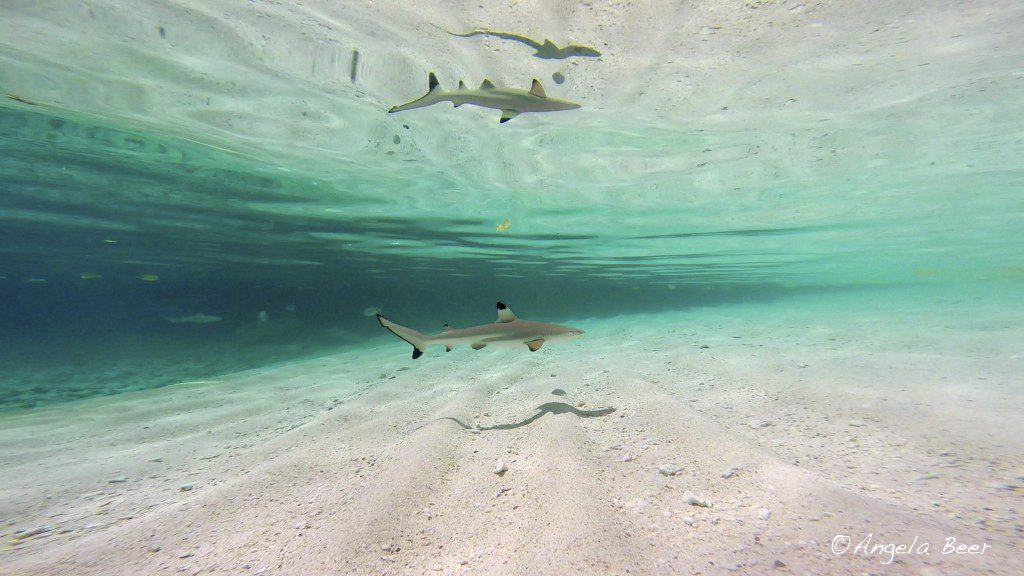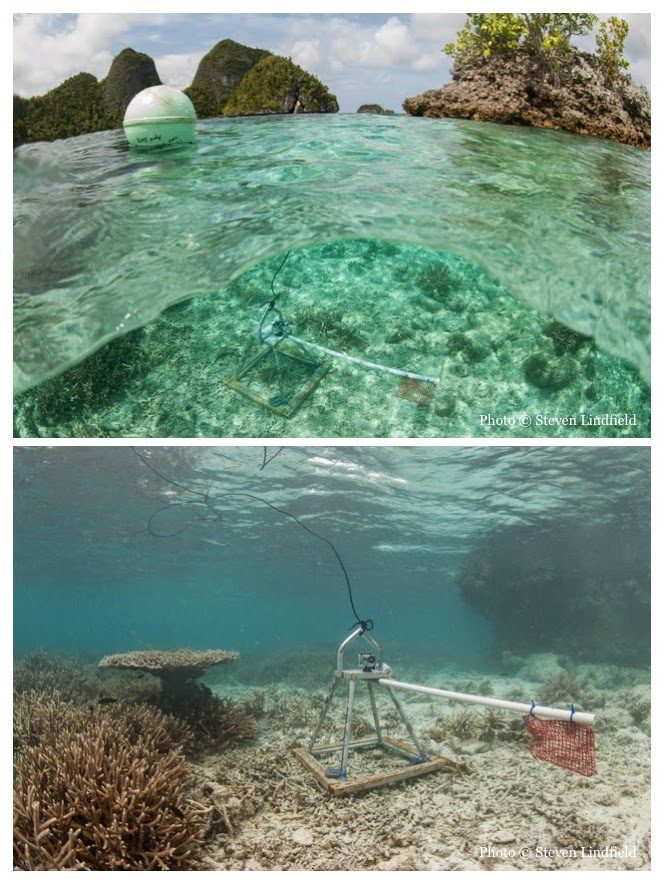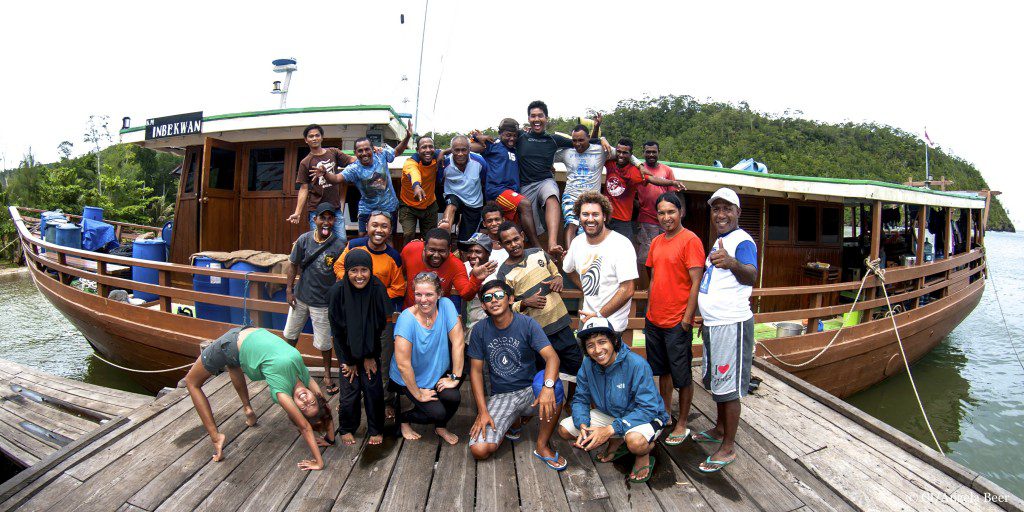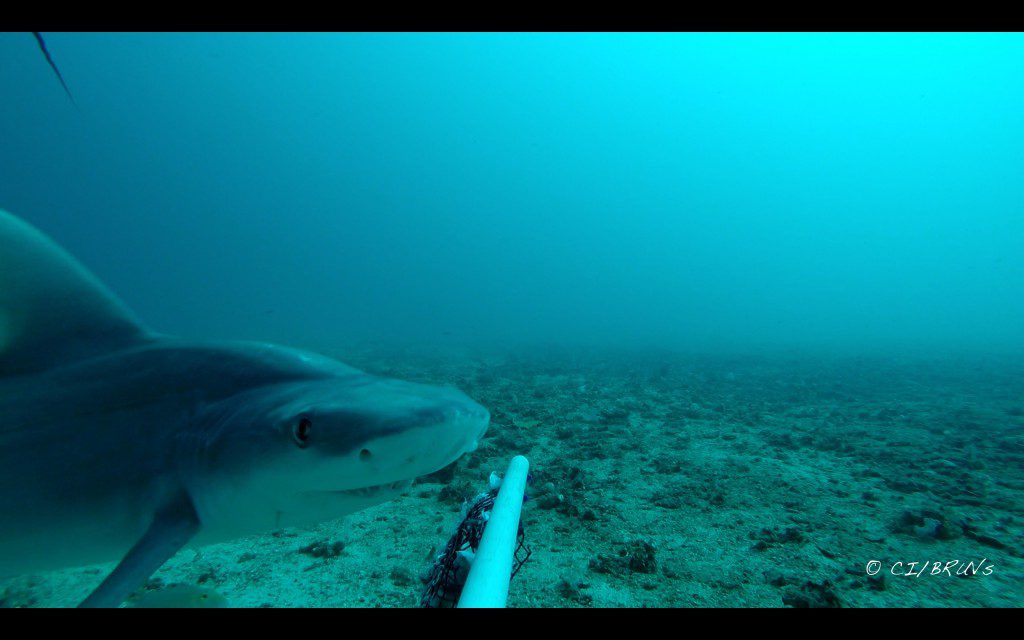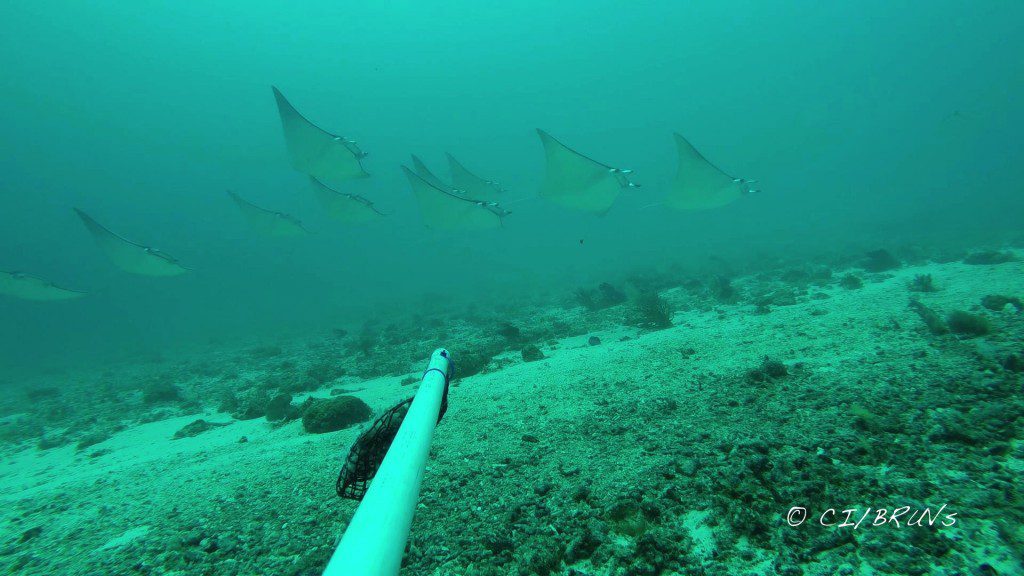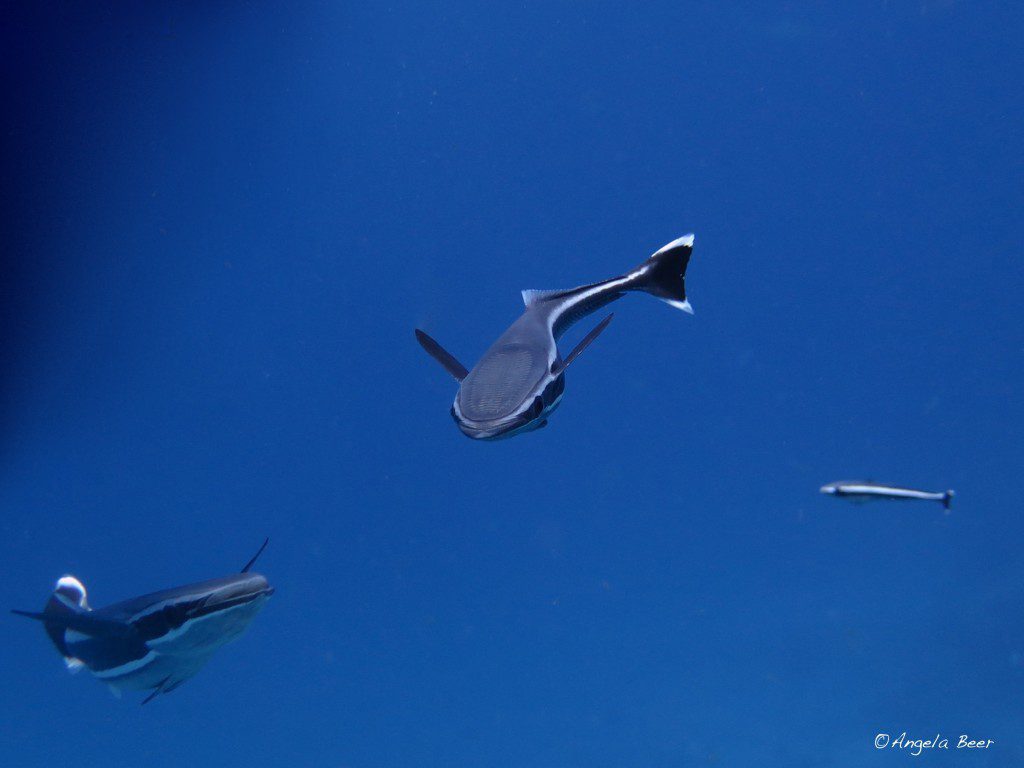Marine Life & Conservation
BRUVs Shark Research in Raja Ampat
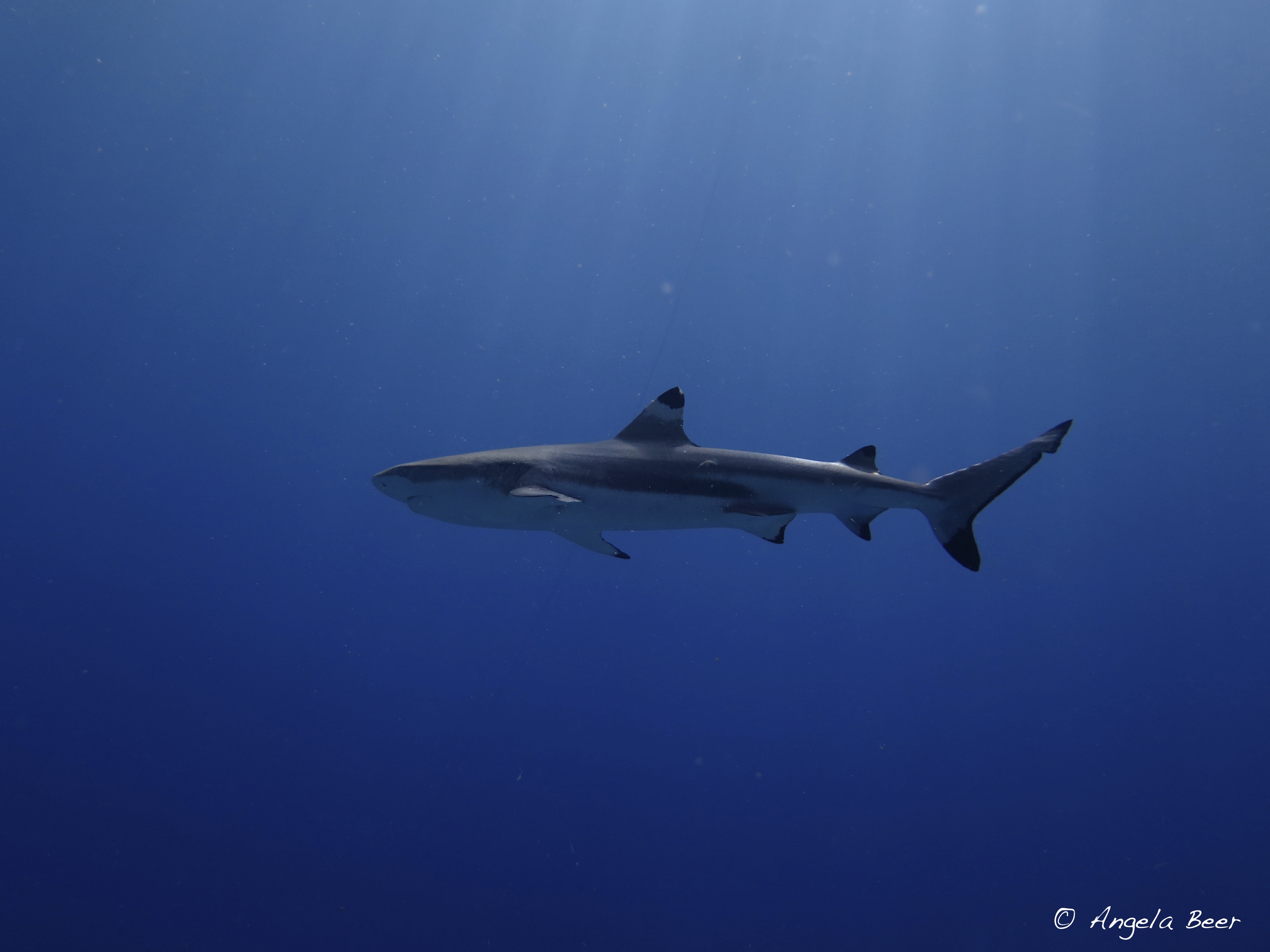
Conservation International (CI)’s Mark Erdmann previously blogged about the Bird’s Head Seascape surpassing the milestone of 1750 reef fish species recorded, leaving no doubt as to where the global heart of marine biodiversity lies. The remote tropical islands of Raja Ampat, West Papua, are the epicenter of this marine richness, and may be a haven for shark diversity in particular – That’s what we’re in the process of finding out with Conservation International’s science and monitoring team, through an innovative shark research program.
Sharks are ancient animals and are important for healthy oceans, yet they are threatened with extinction. The people of Raja Ampat traditionally live harmoniously with nature, but outside threats are encroaching. Guardians of their natural heritage, local people, supported by international partner organizations CI and TNC, set up Marine Protected Areas (MPAs) for conservation (Watch a tribute to the “Guardians of Raja Ampat”). Additionally, in 2012 the local government declared the entire region an official “Shark Sanctuary” through a law that protects all sharks and rays, as well as other charismatic key species, such as dugong, sea turtles and endemic species. This was a positive step in recognizing the benefits of healthy elasmobranch (cartilaginous fish, such as sharks and rays) populations for local communities, both economically and ecologically.
These management initiatives, combined with effective patrol & enforcement, and understanding shark populations, should help locals manage MPAs to protect these charismatic species, thus helping improve food security and alternative livelihoods through tourism. The mantanomics are sound, and the revenue that could be brought in by shark tourism is probably comparable.
We are working to complete the final stage of a study to assess the current status of shark populations in the Raja Ampat archipelago – and will be making a second bid on collecting the data for the final piece of the puzzle, working together with Misool Eco Resort in the spring!
Research uses BRUVs (Baited Remote Underwater Video) to analyze shark diversity and relative abundance between no-take and fished sites over depth gradients. This study provides baseline data to enable assessment of the impact of management efforts related to Patrol & Enforcement, and Outreach & Education, of both the Marine Protected Areas (MPAs) and the Shark Sanctuary as a whole throughout Raja Ampat.
The first field data collection trip was a great collaboration where we learned a lot and ultimately went exceedingly well. Despite many challenges, including rough weather and wild sea conditions, the disciplined, hard-working team completed monitoring at Wayag MPA, Dampier MPA and the Fam Islands. GoPro cameras were submerged in shallow, medium and deep waters at a minimum distance of 500m from one another, and left to record for one hour. In 15 days of surveying we successfully completed 470 camera drops – two more trips got the tally up to almost 1000, now including Ayau, Kofiau and Mayalibit Bay MPAs as well!
Although completing data analysis is taking longer than anticipated, preliminary reviews suggest that approximately 50% of the videos captured contain images of sharks. At least nine different species of shark were recorded, including the common black- and white-tip and grey reef sharks, tawny nurse shark, banded bamboo shark, and an exciting first for Raja Ampat (and thus a +1 for the Raja Ampat species count), Hemipristis elongata, more commonly known as the “Snaggle-toothed shark”.
In addition to the sharks, many other interesting and unexpected appearances on camera included mantas, mobulas, eagle rays, golden cow-nosed rays, turtles, spanner crabs and moray eels. We were disappointed to catch many remora without hosts on camera… and have come up with a new slogan for a “Shark Savers”campaign: Save the Sharks – the ramoras are getting lonely!
Onboard CI’s research vessel, the team also hosted the well-known TV presenter Riyanni Djangkaru and her Trans7 TV crew for two days, while they filmed our activities. Riyanni is actively supporting the nation-wide Save Sharks campaign, and we hope her effort to document the BRUV project in Raja Ampat will raise awareness throughout the country and be a positive force in the larger-scale shark conservation efforts.
Indonesia has the largest shark fishery in the world and is thus an important place to focus shark research and conservation efforts. The more we know about these cool, ancient animals, the better we can protect them. We hope that data from these surveys will help the campaign to protect sharks on a national level – much the same way we were able to convince the government to pass national legislation to protect manta rays a year ago.
Say CHEESE, Sharkies!!!
To view the project video click here: VIDEO
This project was a joint initiative between Conservation International (CI), the Raja Ampat government, RRU (Royal Roads University) and NSERC (The Canadian National Science and Engineering Research Council), in collaboration with Raja Ampat Research and Conservation Centre, Misool Eco Resort and Baseftin Foundation, local communities and with support from Walton Family Foundation, Allchin family’s Sunbridge Foundation, the Friend family’s Nicole Friend Memorial Trust. For a complete list see credits at end of video.
Marine Life & Conservation
Experience the Greatest Shoal on Earth followed by few nights with Sharks next month at some really great rates with Seas4Life (Watch Video)
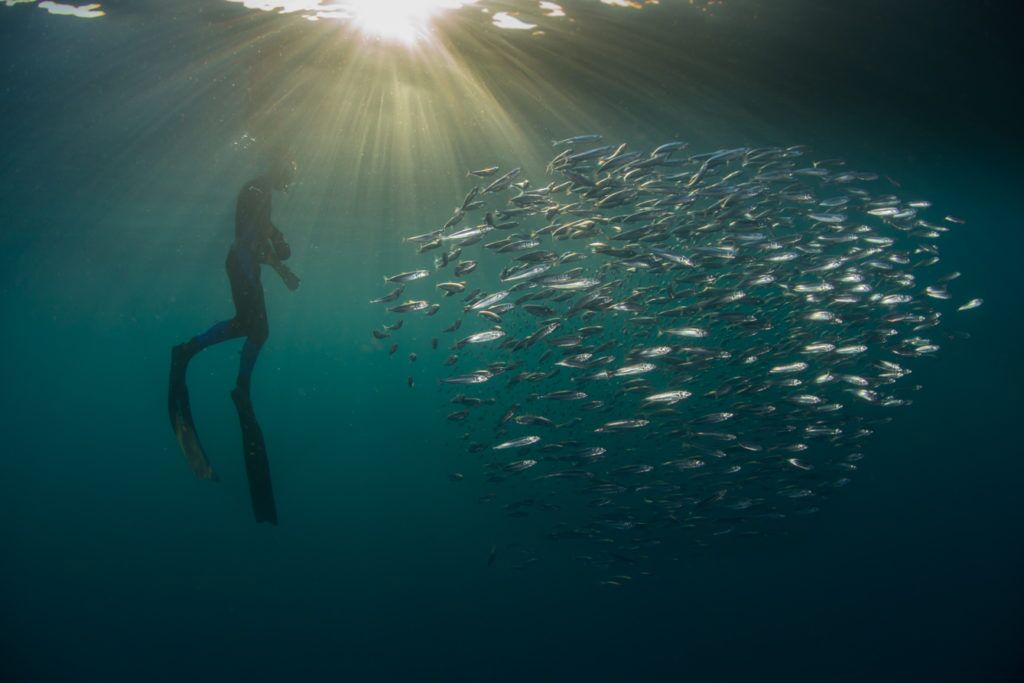
An Exclusive, Expert Led, One-Off experience…
For just a few short weeks each year – end of May through to end of June – the mighty Sardine Run showcases the epic efforts of supreme marine predators working in unison to feed off the migrating sardines in a most dynamic flurry of action. End of June early July is also when the shark season begins – just imagine it is a David Attenbourgh Blue Planet experience.
In case this natural wonder wasn’t exciting enough – majestic humpback whales just happen to start their annual migration back up north adding to this phenomenal experience.
Its a must for the adventurous soul.. Lots of love, laughter, and smiles.
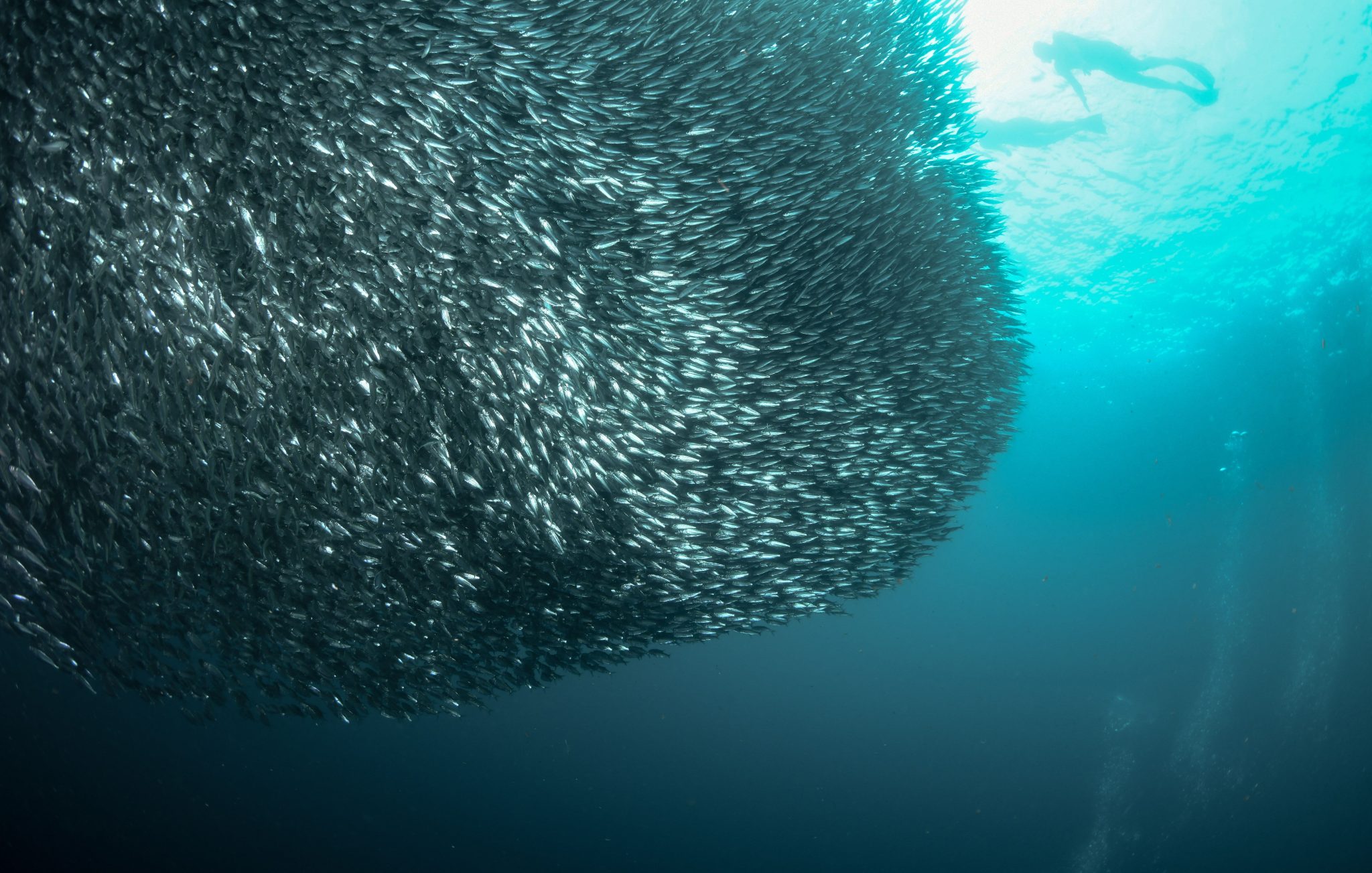
This is a feeding event of unmatched proportions. Thousands of common dolphin charge after the shoals, separating them into bait balls, with their ‘dolphin bubble technique’, bring them to the surface. Watched from the air by the cape gannets, who then launch a massive aerial assault on the sardines. They are also easy pickings for shivers of bronze whaler, dusky and black tip sharks, seals and lastly the huge mouths of Brydes (Brooders) whale that can consume an entire bait ball in one single lunge!
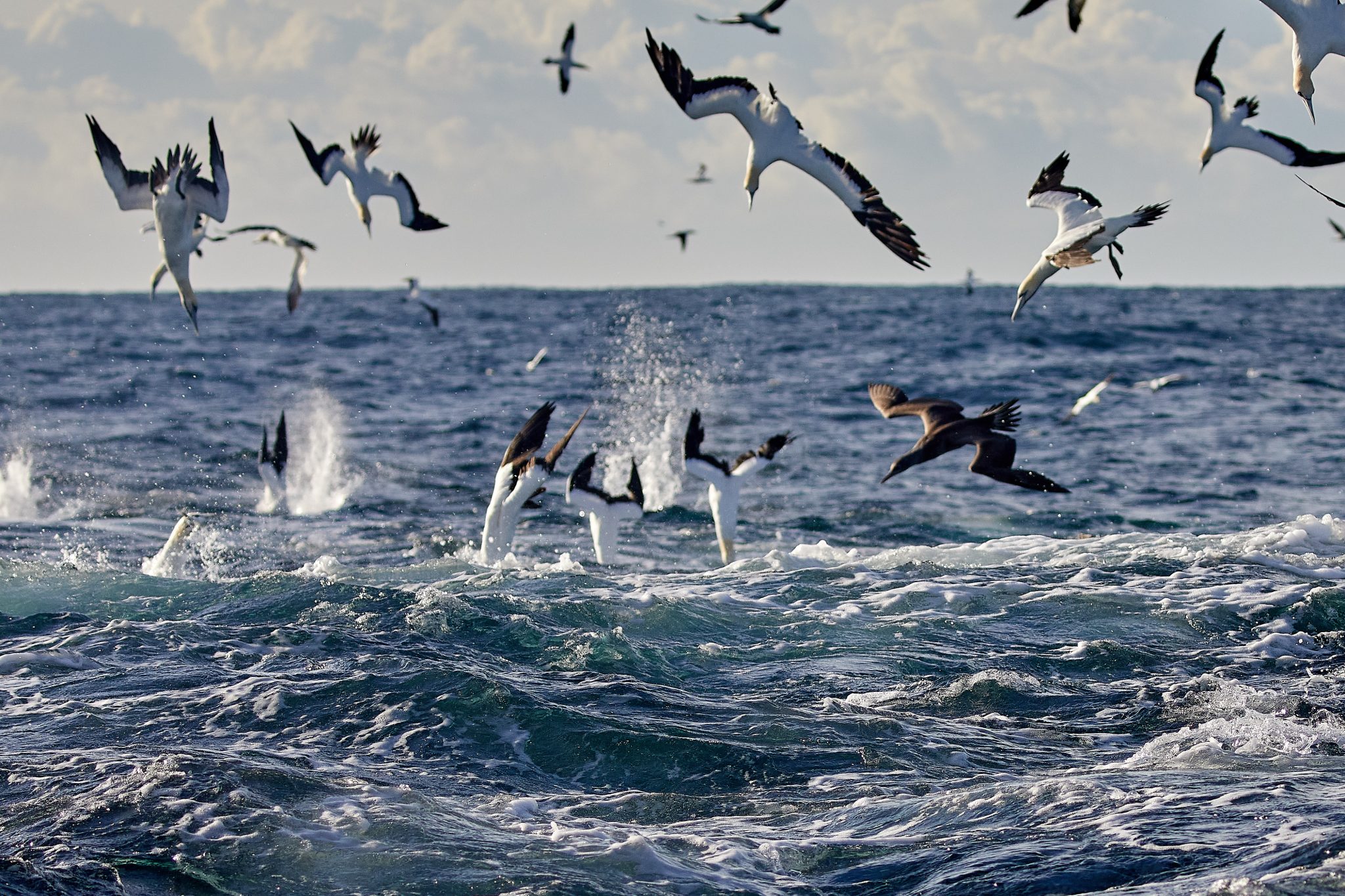
Seas4Life is offering an incredible deal for this year’s Sardine Run. Here are the details:
Date: June 23rd – July 2nd 2024
Type: Family, group, couples, solo travellers. Min of 4 pax – max 8 pax
Location: South Africa
Nights: 9 nights/10 days
Rates originally started at USD$9,705 per person 9 Nights PP, based on 5 pax on the trip. However, you can now experience the Greatest Shoal on Earth followed by some seriously unforgettable shark action for just USD$7,100 per person.
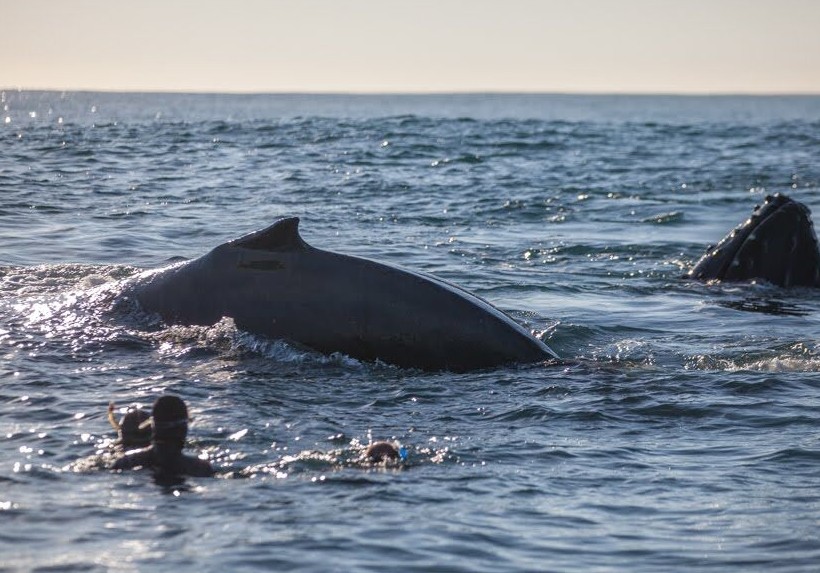
Includes:
- 5 night stay at Gulu Game Reserve (23rd – 28th June)
- 4 night stay at Africa Oceans Manor (28th June– 2nd July)
- 9 nights fully catered stay with breakfast, packed lunch and dinner
- Welcome drinks and selected alcohol (local beers, wines and spirits)
- 4 Sardine Run Days and 3 full Shark Research Days – 1 morning being with Great White
sharks - Guiding by expert marine conservationists, shark specialists and ocean enthusiasts
- Transfers to and from the airports and to and from the launch base and hotels; and on 28th June from Gulu Game Reserve to African Oceans Manor along the Southern African Coastline and parts of the Garden Route
- Privately chartered 26 foot (8m) semi-rigid dive boat (South African Maritime Safety Authority, licensed to travel up to 40 Nautical miles offshore) with two 140hp motors
- Snorkelling and scuba diving gear
- All activities as outlined in the itinerary
- Use of Gulu Private Resort and African Oceans Manor facilities including rejuvenating in their spa, use of the pool, playing tennis, hiking or fishing… (these will be charged separately if used)
- Marine conservation contribution to the shark research unit
- Offsetting your carbon through Planet Moja
- AMREF
- Lead shark scientist Nico, sardine run expertise of ScubaXursions
- Julie as lead guide
- Lots of smiles, laughter and many memories made
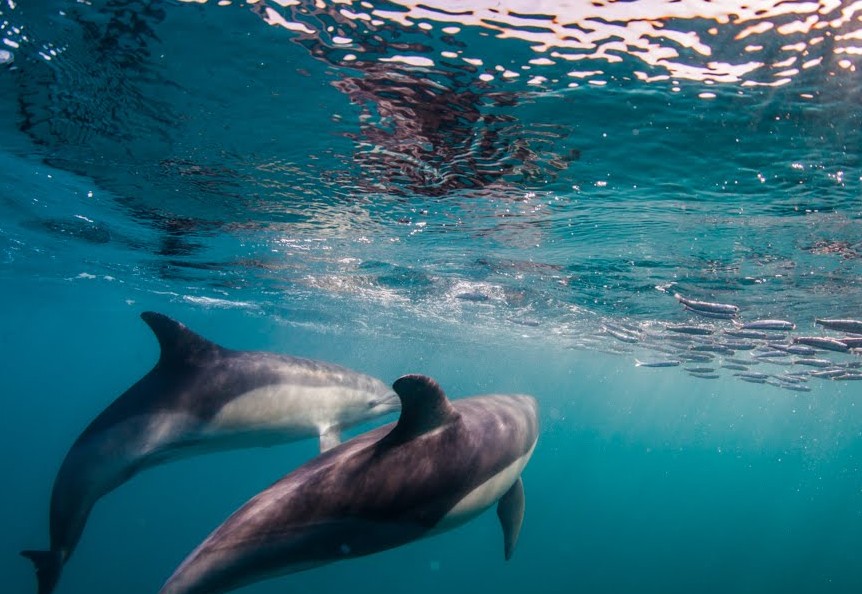
Excludes:
- International flights
- Visas and taxes (airport, government and tourist)
- Scuba diving, free diving and underwater photography courses
- Alcoholic drinks (unless stated) champagne, luxury spirits and selected wines
- Activities not outlined above
- All photographic gear
- DAN Insurance, Scuba and/or photographic gear insurance
- All additional park and/or conservancy fees if applicable
- Travel and health insurance
- Items of a personal nature
- Gratuities
For more information or to book, contact Seas4Life now:
info@seas4life.com / +254 723 639 640 / seas4life.com
Blogs
Heading out on the water this Summer? Watch for manatees
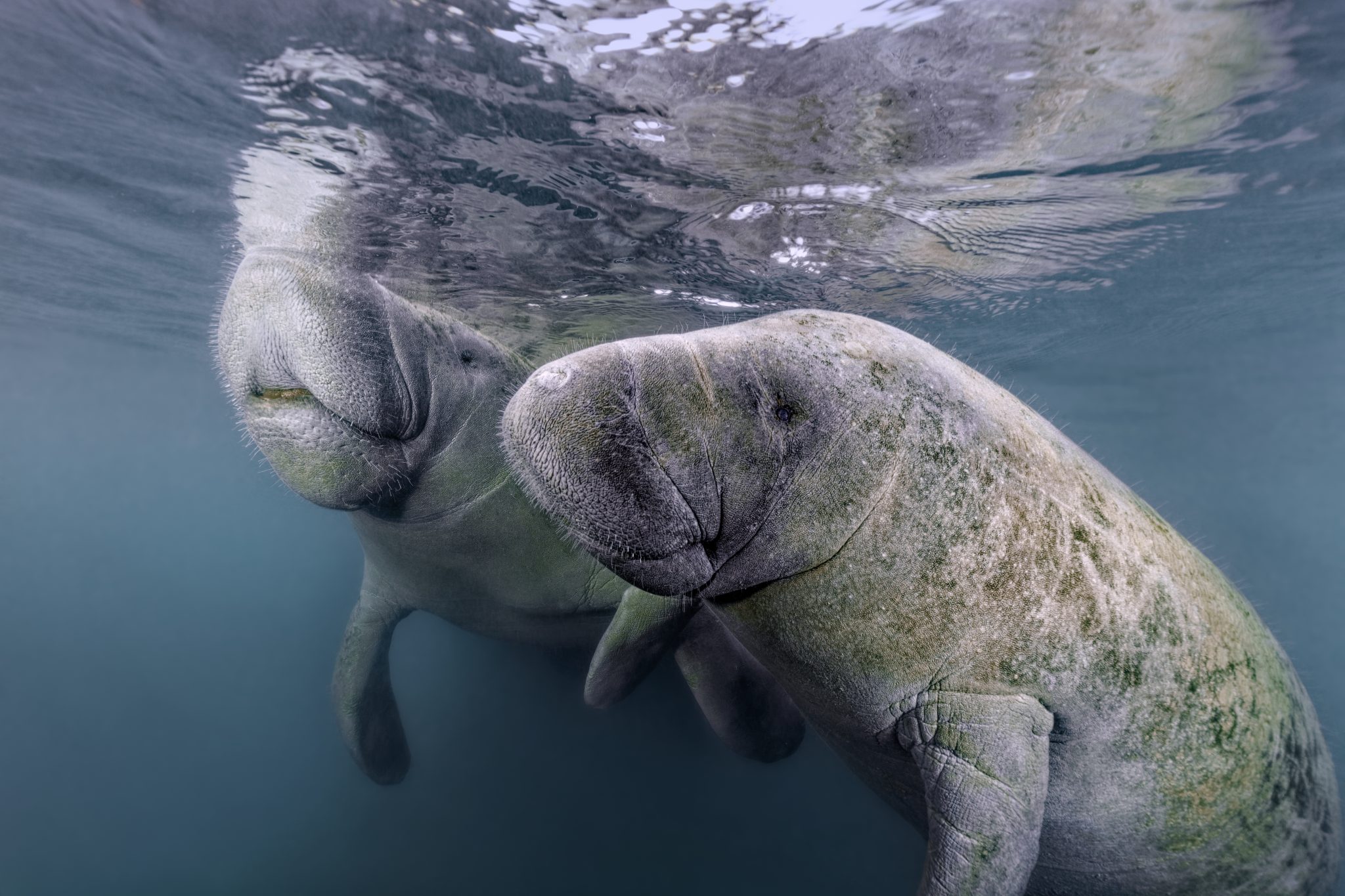
As National Safe Boating Week approaches, Save the Manatee® Club is urging boaters, and anyone that enjoys Florida’s waterways, to respect and protect the defenseless manatees that inhabit our shared waterways. From May 18 to 24, leading up to Memorial Day Weekend, the campaign aims to raise awareness about recreational boating safety and the importance of safeguarding imperiled manatees during the summer boating season. This week also emphasizes the importance of encouraging boaters to enroll in a boating safety course.
Manatees are semi-migratory marine mammals that are commonly found in shallow estuaries, bays, rivers, canals, and coastal areas throughout Florida and neighboring states. With some manatees venturing as far west as Texas and as far north as Massachusetts, collisions between these gentle giants and watercraft have become distressingly frequent. Boat propellers and high-speed collisions pose significant threats to manatees, often resulting in severe injuries or even death.
Save the Manatee Club is calling on all water enthusiasts to follow essential manatee safety tips to ensure the well-being of the imperiled manatee:
- Obey Speed Zone Signs: Familiarize yourself with and adhere to posted speed limits to prevent collisions with manatees.
- Reduce Glare with Polarized Sunglasses: Wear polarized sunglasses to enhance visibility and spot manatees below the water’s surface.
- Recognize Manatee Signs: Learn to identify signs of manatees in the area, such as swirls or flat spots on the water caused by their movements.
- Respect Manatee Sanctuaries: Keep a safe distance from posted manatee sanctuaries and avoid pursuing or harassing these marine mammals, as it is illegal and can disrupt their natural behaviors.
- Report Distressed Manatees: In Florida, promptly report distressed, injured, tagged, or orphaned manatees to the Florida Fish and Wildlife Conservation Commission (FWC) at 1-888-404-FWCC (3922). Outside of Florida, report sightings to the appropriate state agency or rescue organization. A list of agencies to contact is available at savethemanatee.org/report.
- Protect Seagrass Beds: Avoid boating over seagrass beds and shallow areas where manatees may be feeding. Stick to deep water channels while remaining vigilant, as manatees also utilize these channels during their travels.
- Dispose of Fishing Line Responsibly: Anglers should properly dispose of or recycle used fishing line to prevent entanglement hazards for manatees.
“Each year, National Safe Boating Week provides an excellent reminder for all of us to be aware that we share our waterways with vulnerable manatees,” emphasized Patrick Rose, Aquatic Biologist and Executive Director of Save the Manatee Club. “With the recent Unusual Mortality Event on Florida’s East Coast claiming an alarming number of manatees’ lives, it is more crucial than ever to prevent preventable deaths caused by watercraft collisions. By following manatee-safe boating guidelines, such as obeying speed zones and remaining vigilant for manatees, everyone on the water can contribute to the protection of these gentle giants.”
Save the Manatee Club offers a range of free materials to help safeguard manatees and raise awareness about manatee-safe boating practices. Shoreline property owners and park or marina managers can order aluminum dock signs to alert others about the presence of manatees in their areas. Boaters and paddlers can request packets containing a safety tips card, a waterproof boat banner, and a decal to display on their vessels, providing the number to report manatees in distress. To view and request these materials, visit savethemanatee.org/resources. Save the Manatee Club will also be hosting a live webinar for National Safe Boating Week on Tuesday, May 21st at 6pm EST. To register, visit savethemanatee.org/register.
-

 Blogs4 weeks ago
Blogs4 weeks agoDive Indonesia Part 3: Dive into Lembeh Trip Report
-

 Gear Reviews1 month ago
Gear Reviews1 month agoGEAR REVIEW – Revolutionising Diving Comfort: The Sharkskin T2 Chillproof Suit
-

 News3 months ago
News3 months agoPADI Teams Up with Wellness Brand Neuro to Drive Ocean Change and Create a Blue State of Mind
-

 Blogs2 months ago
Blogs2 months agoMurex Resorts: Passport to Paradise!
-

 Blogs3 months ago
Blogs3 months agoDiver Discovering Whale Skeletons Beneath Ice Judged World’s Best Underwater Photograph
-
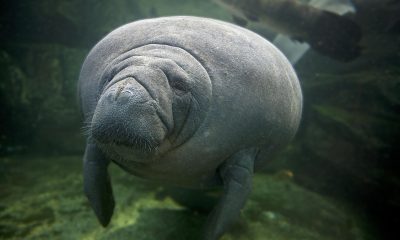
 Blogs2 months ago
Blogs2 months agoSeagrass Awareness Month brings critical food source for Manatees to centre stage
-

 Marine Life & Conservation3 months ago
Marine Life & Conservation3 months agoSave the Manatee Club launches brand new webcams at Silver Springs State Park, Florida
-
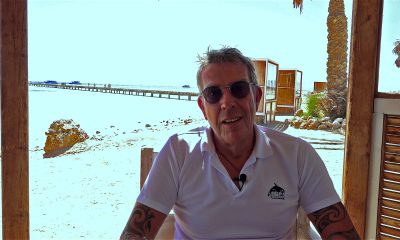
 Blogs2 months ago
Blogs2 months agoSOMABAY: Scubaverse interviews Wolfgang Clausen, General Manager, ORCA Dive Clubs


